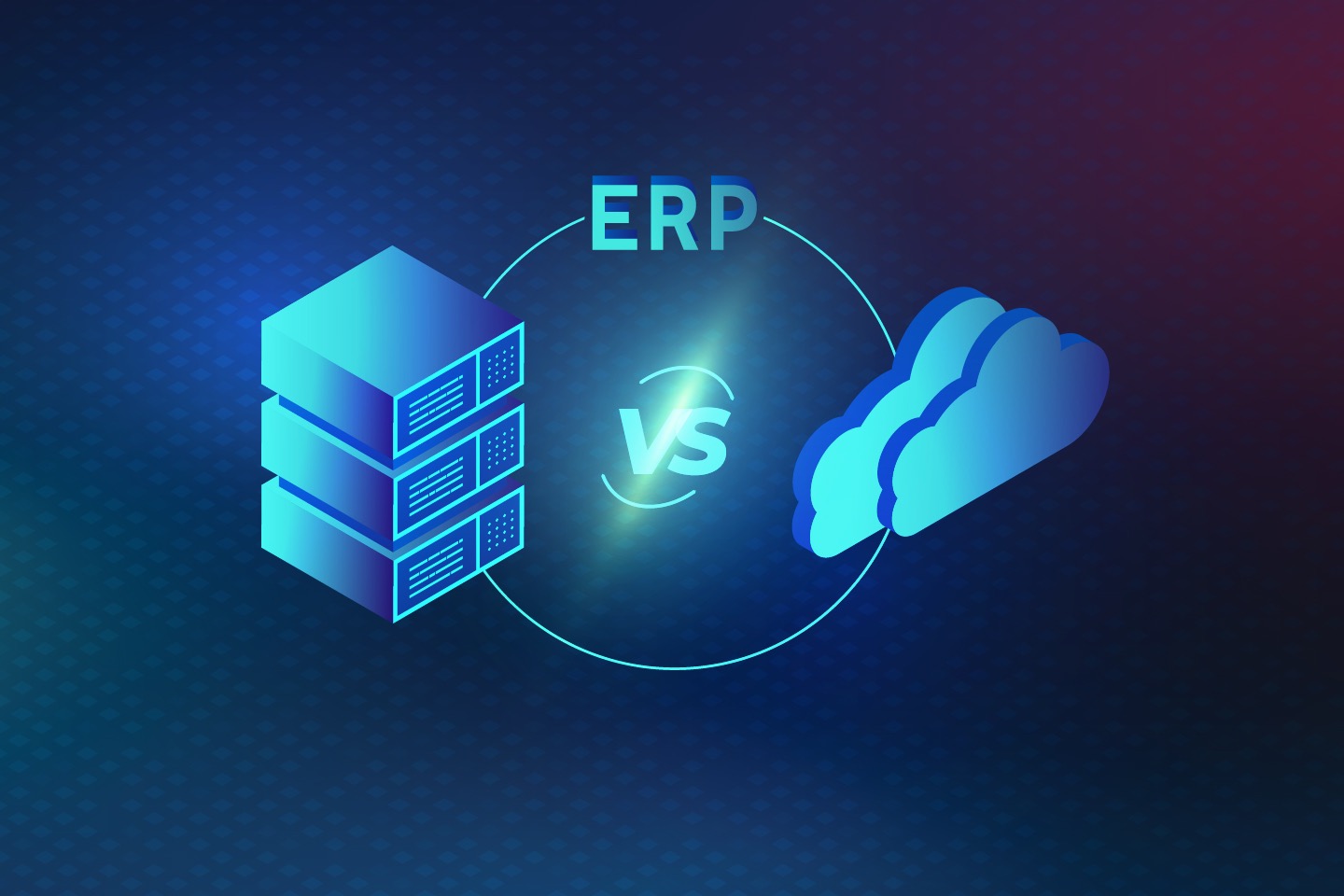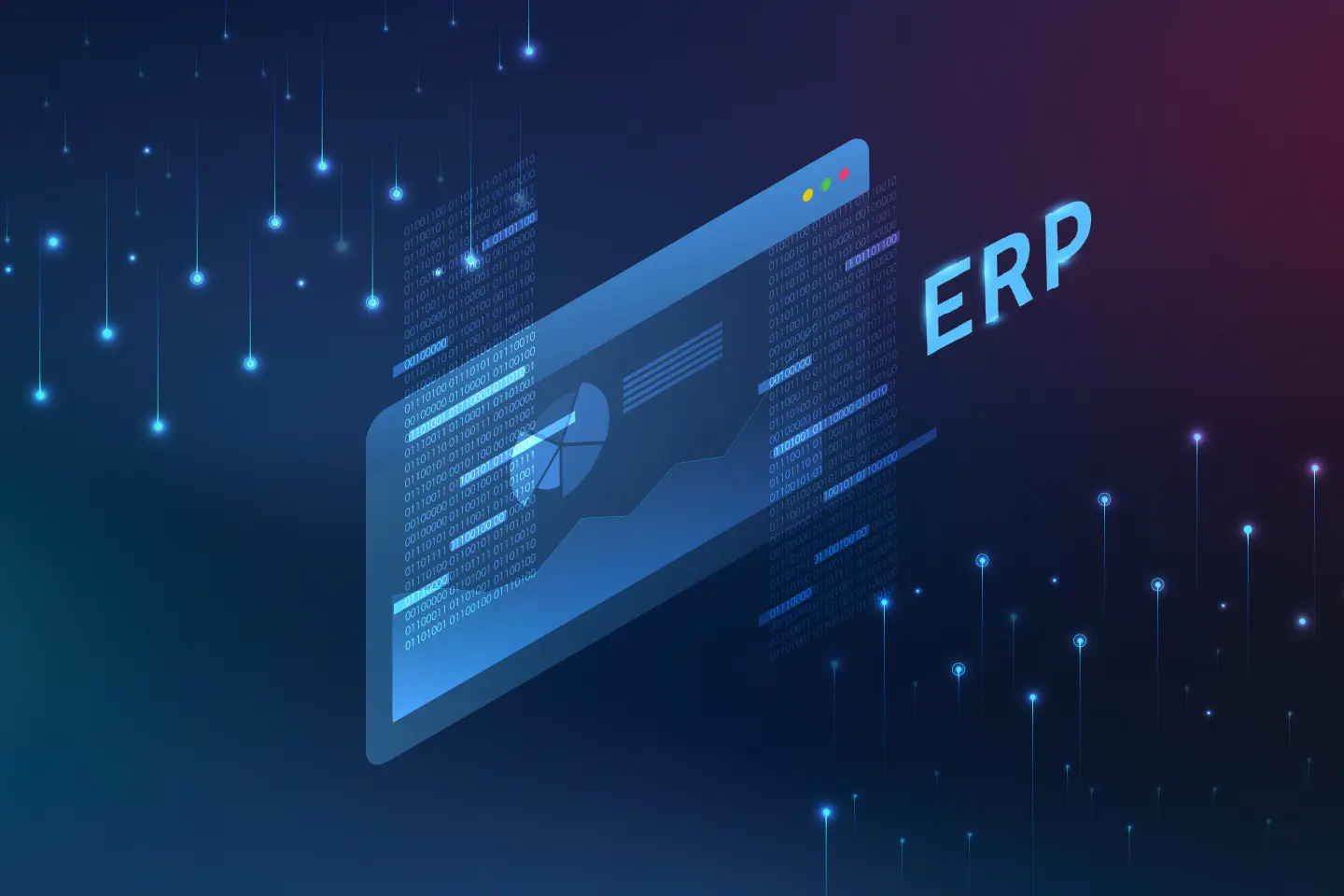Enterprise Resource Planning (ERP)
Cloud vs. On-Premise ERP: Which Should I Choose?
Nathan Maas March 12, 2024

Discover the key differences between cloud-based and on-premise ERP systems to make an informed decision for your business. Explore the benefits and considerations of each option to align with your operational needs and growth goals. Learn how the right ERP choice can boost your business's efficiency.
Choosing Between Cloud and On-Premise ERP Systems
In the journey of selecting an Enterprise Resource Planning (ERP) system, one of the most critical decisions you'll face is choosing between a cloud-based and an on-premise solution. This decision is pivotal and should be informed by your organization's size, industry-specific needs, and the outcomes you expect from the ERP implementation. Understanding the differences between these two options is crucial for making an informed choice that aligns with your business strategy.
It is important to note that no matter what type of ERP you choose, you understand the importance of ongoing support and customization. These are not add-ons but a necessity, as highlighted in the importance of ERP support and customization article.
Dive into the Debate with Our Latest Podcast
Expert Insights on Cloud vs. In-Premise ERP
Explore the critical aspects of cloud and in-premise ERP systems with our experts. Understand the key differences and implications to make informed decisions for your business strategy. Listen now for groundbreaking insights.
Cloud-based ERP Solutions
Cloud ERPs are hosted on the vendor's servers and accessed via the Internet, offering a flexible and cost-effective approach to ERP implementation compared to on-site ERPs. In other words, they can be accessed from any device anywhere, with a smaller price associated and need less hardware.
Advantages:
- Lower Upfront Costs: Cloud ERP solutions typically operate on a subscription model, significantly reducing the initial investment required for software and hardware.
- Ease of Access: These systems can be accessed from anywhere at any time, providing flexibility for businesses with remote or mobile workforces.
- Scalability: Cloud solutions can easily scale up or down based on your business needs, making them an excellent choice for growing companies.
- Automatic Updates: Vendors automatically update cloud ERPs, ensuring you always have access to the latest features and security enhancements without additional costs or effort.
Considerations:
- Dependence on Internet Connectivity: Reliable internet access is crucial for cloud ERP performance, which can be a limitation in areas with poor connectivity.
- Data Security: While cloud ERP providers invest heavily in security, some businesses may have concerns about storing sensitive data off-site.
On-Premise ERP Solutions
On-premise ERPs or on-site ERPs are installed on your company's hardware and managed by your IT team, offering greater control over the system and data. This approach offers great customization and control at the expense of cost and time of implementation.
Advantages:
- Control and Customization: On-premise solutions provide more control over the ERP environment and offer extensive customization options to fit unique business processes.
- Data Security: With data stored on-site, companies can manage their security protocols directly, which is often a requirement in industries with stringent data security regulations.
Considerations:
- Higher Initial Costs: The need to purchase hardware and software licenses along with maintenance and IT staff costs contribute to a higher upfront investment.
- Maintenance and Upgrades: Your organization is responsible for maintaining, updating, and upgrading the system, which can be resource-intensive.
Making the Right Choice
The decision between a cloud-based or on-premise ERP should be guided by a thorough analysis of your business needs, growth projections, budget, and IT infrastructure. For businesses seeking cost efficiency, flexibility, and ease of use without substantial upfront investment, cloud ERP solutions may be the best option. On the other hand, organizations requiring maximum control over their data and systems, especially those in highly regulated industries, might find an on-site ERP more efficient.
It's crucial to recognize that selecting any ERP system requires an understanding of the essential nature of continuous support and customization. These elements are not mere extras but fundamental necessities. Moreover, choosing the right ERP vendor—one that understands your business and offers the support and services you need—is crucial to implementation success. This choice will significantly influence your organization's operational efficiency, data management capabilities, and long-term growth potential.
Regardless of the path you choose, partnering with the right ERP vendor—one that understands your business and offers the support and services you need—is crucial to implementation success. This choice will significantly influence your organization's operational efficiency, data management capabilities, and long-term growthpotential.

. . .

Insight by Nathan Maas
Account Manager
Nathan is a digital marketer passionate about how storytelling, targeted messaging, and implementing technology create business-changing content. As an Account Manager, he is responsible for assisting with communication to help his clients increase brand awareness, generate leads, and acquire new customers.
Related Insights

Enterprise Resource Planning (ERP) Digital Transformation
Top 10 Task Management Tools

Enterprise Resource Planning (ERP)
Top ERP Software Solutions: An In-Depth Comparison

Enterprise Resource Planning (ERP)
The Future of ERP: AI, IoT, and Blockchain Integration
Connect in 3 simple steps
Let's connect.
We want to hear from you and learn how we can make technology work for your organization.